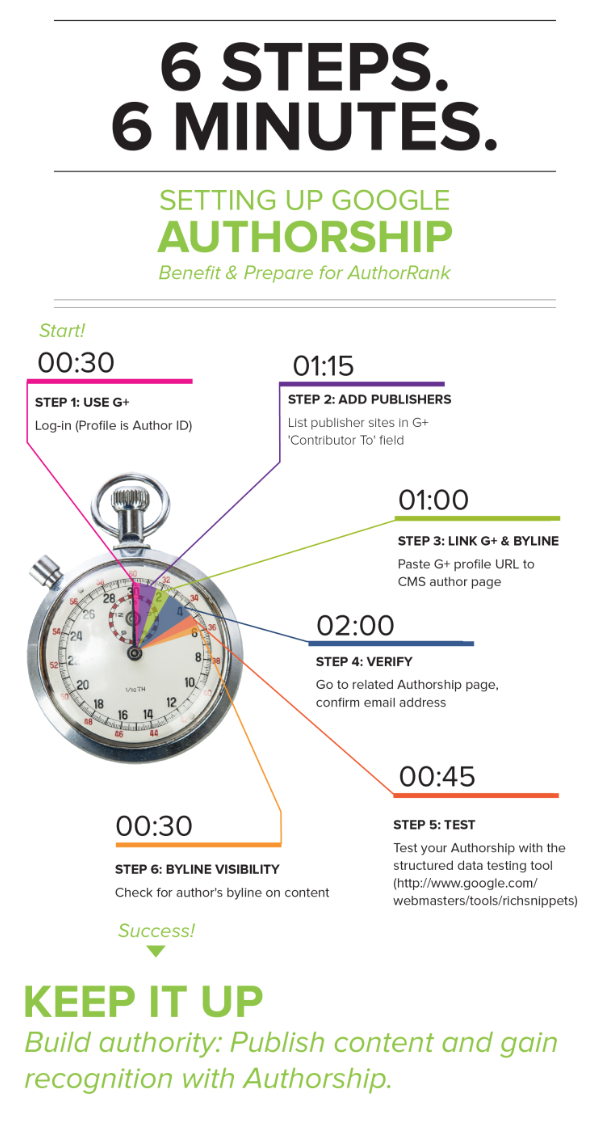
- Your level of engagement on Google+
- Inbound links to your content
- Shares and +1’s of your content posted on Google+
- External engagement
- Number of Google+ circles you’re in
- Your level of authority on other social platforms, such as Twitter and Facebook
- Your number of connections with other Google+ authors who are ranked high
- The number of comments you receive on content published on Google+
- Other authority signals, such as articles, citations and mentions from other news sources
- Claim your Authorship: This is the first, most basic step, and it involves linking your Google+ profile to your content. This will give you visibility in search results as your content appears in a type of rich snippet, which increases click-rates.
- Be Consistently Active on Google+: Know how to properly format your posts and take into account the readability of each post. The goal is to create Google+ posts that users want to click on. You should also add a “+1 button” on your website where your articles are being posted. Finally, consistently be active every day on Google+ and engage other authors. The more determined you are to create connections on Google+, the faster it will happen. Which brings me to number three:
- Network on Google+: Just as I have described in my networking strategy before, one of the factors of your Author Rank depends on how many high-rank connections you have. Once these high-ranked authors are in your circles, your +1’s will increase along with your Author Rank.
- Selective Guest Posting: Posting content from other highly authoritative websites will help your Author Rank, just as back-linking does. You don’t want to post low-quality links that have the credentials to back up their claimed reputability. More high-quality website links = a higher level of credibility and trust.
- Find your Niche: You need to determine an area of interest that you’re equipped to write about, and you must not stray from it. You’ll be much more likely to rank higher as an authority of one subject, rather than two.
- Create Excellent Content: This has already been covered, but it’s good to reiterate. The content needs to be worth sharing, especially since the latest Panda update is centered around judging the quality of content and ranking it accordingly.
Why is Google Authorship Important?
Formerly, Google used to only rank websites and not individuals who wrote for the website. Now, Google Authorship allows them to rank you as an individual, giving you your own personalized “Google Footprint” that tracks your authority in your industry. This means that websites will be ranked by the authority of their authors, along with the authority of the site. If you have a highly ranked authorship, you’ll naturally raise the authority of the website you write for.
Trevor Micklow is a business writer and content curator based out of Chicago, IL. US. He specializes in digital strategies, social media, psychology, executive education and business school related topics. He has been working and coordinating the general content of IntelligentHQ’s business school directory, which gives key information and programme details on the top business schools in the world. He has a BS, Psychology from Central Michigan University.











